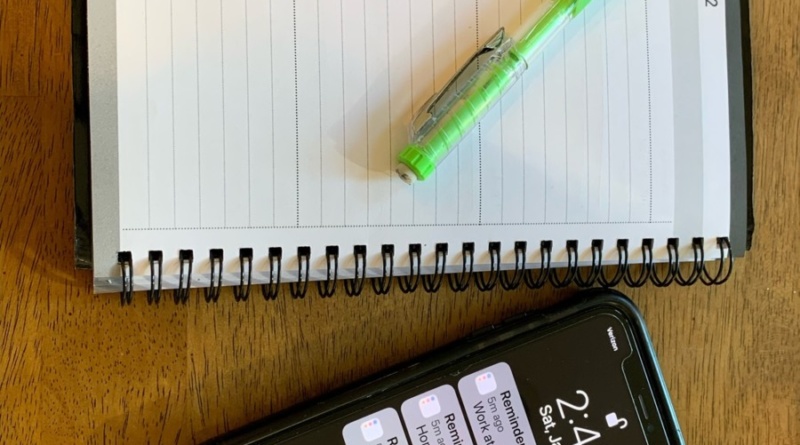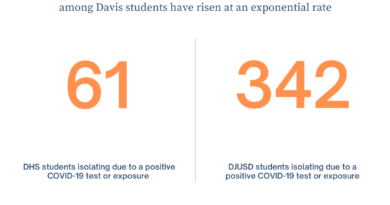After school jobs giving students more than just a paycheck
PHOTO: Students manage work while balancing schoolwork and other activities.
By Alex Miyamoto,
BlueDevilHUB.com Copy Editor–
Junior Mohammed Al-Ghlai finishes his school day. He is exhausted from classes but eager to get to his after school job.
Al-Ghlai works as a referee for the Davis Adult Recreational Soccer League. He balances work, school, sports and his social life.
Al-Ghlai is not the only Davis High student employed in an after-school job.
According to the 2020 United States census, employment rates for teens ages 16-19 have gone up 2.2% from 2010 to 2019.
High school students have used the availability and accessibility of jobs to their advantage. In a survey with over 90 students, around 63% of respondents currently have an after-school job.
Al-Ghlai works around eight hours each week and over the past two years as a referee, he has gained various life skills.
“(It’s made me) a more responsible person, and it has taught me how to be more efficient,” Al-Ghlai said.
Similarly, junior Sophia Koehler is a part of the growing number of employed students.
Koehler works as a gymnastics coach at Davis Diamonds Gymnastics and works upward of seven hours a week.
She has been working at the gymnasium for more than a year and has picked up a few tricks teaching younger gymnasts.
“Learning how to keep (the kids’) attention while prioritizing their safety can be overwhelming… but learning how to be patient has made it much easier,” Koehler said.
Al-Ghlai enjoys what he does, but takes it with the challenges.
“It’s really fulfilling to work, but comes with its struggles,” Al-Ghlai said.
UC Davis professor Amanda Guyer has been teaching human development and family studies for more than 11 years. Guyer is well versed in physcology, earning her PhD in the subject matter and participating in postdoctoral research at the National Institute of Mental Health (NIMH).
Guyer explains that working an after-school job has benefits for students.
“(It) can foster a sense of accomplishment and contribution to a shared goal/mission in the workplace,” Guyer said.
Although working has its perks, it can also take a mental toll on students.
During late adolescence to early adulthood there is major development of how the brian reacts to social and emotional situations. Therefore, Guyer recommends that “time management is critical for balancing multiple demands on one’s time, at any age.”
Counselor Catherine Pereira similarly suggests that it is “important for (students) to be aware of their time constraints and how much time they reasonably have to do things,” Pereira said.
Through balancing various aspects of life, a valuable lesson Koheler has learned is how to have a positive mindset.
”I chose a job that I have a passion for… I don’t view it as work because it’s something I look forward to,” Koehler said.


